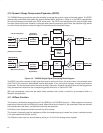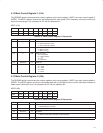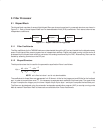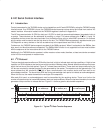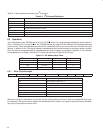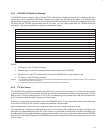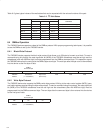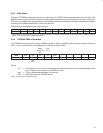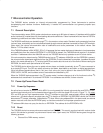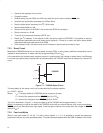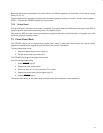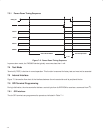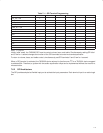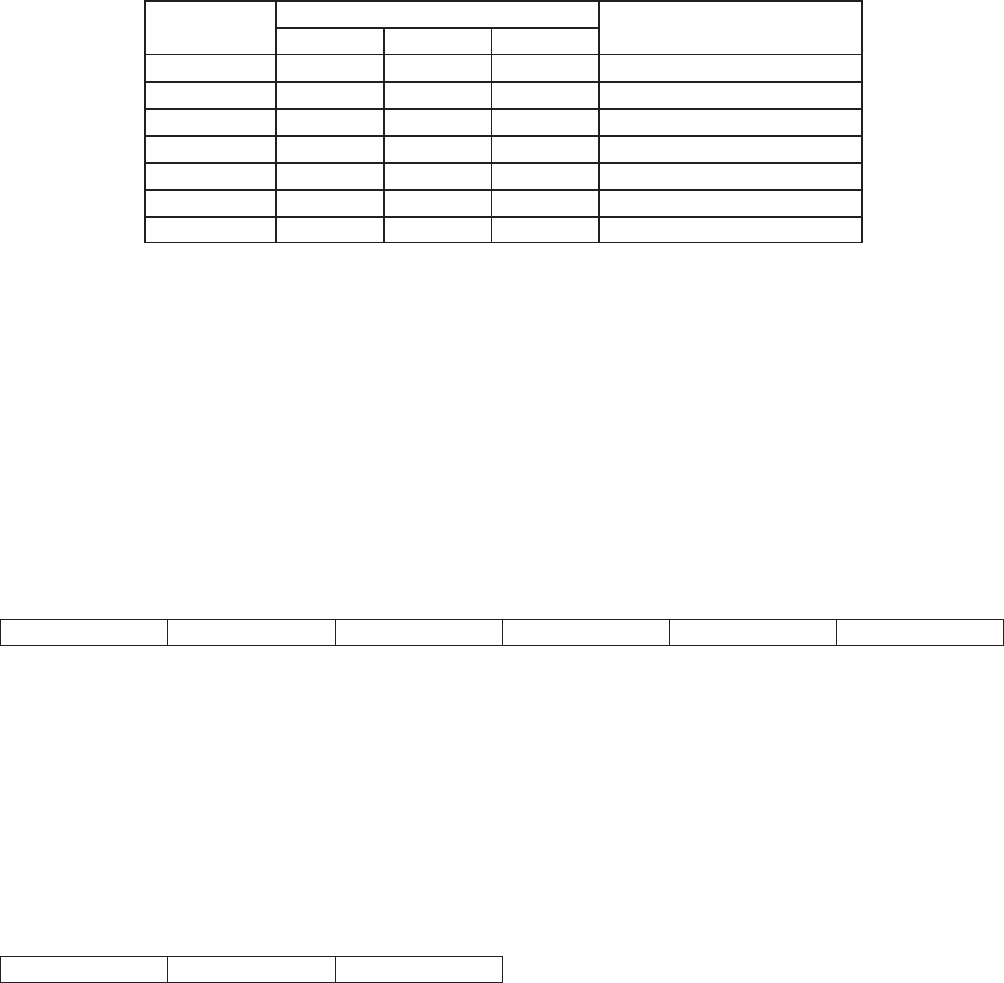
6−4
Table 6−3 gives typical values of the wait states that can be expected with the various functions of the part:
Table 6−3. I
2
C Wait States
SYSTEM SAMPLING FREQUENCY
32 kHz 44.1 kHz 48 kHz
Comment
Volume 62 ms 49 ms 41 ms Not dependent on size of change
Bass 231 ms 167 ms 153 ms 0 to −18 dB
Treble 231 ms 167 ms 153 ms 0 to −18 dB
DRC on 300 µs 300 µs 300 µs
Mixer None None None
Loudness None None None
Equalization 15 ms 190 µs 300 µs Can occur with each filter
6.4 SMBus Operation
The TAS3002 device supports a subset of the SMBus protocol. With proper programming techniques, it is possible
to use the SMBus to set up the TAS3002 device.
6.4.1 Block Write Protocol
The TAS3002 device supports the block write protocol that allows up to 32 bytes to be sent as a block. To send a
command using this format, the most significant bit (MSB) of the TAS3002 subaddress must be set high and the
subaddress (also with MSB set high) must be programmed into the SMBus command byte. This operation signals
the TAS3002 device that the next byte is the SMBus byte-count byte. The next byte after the byte count is then entered
into the device as the first byte of data.
SMBus
Command Byte
68h 8rh xx dd dd dd
TAS3002
Address
Subaddress
(r = subaddress)
Byte Count
(Don’t Care)
Data Data Data
6.4.2 Write Byte Protocol
The TAS3002 device also supports the SMBus write byte protocol. Writing to the main control register (MCR), bass,
and treble registers requires using the byte write protocol. To send a command using this protocol, the most significant
bit (MSB) of the TAS3002 subaddress must be set high and the subaddress (also with MSB set high) must be
programmed into the SMBus command byte. The next byte after the command byte is then entered into the device
as the first byte of data.
SMBus
Command Byte
68h
8rh dd
TAS3002
Address
Subaddress
(r = subaddress)
Data



